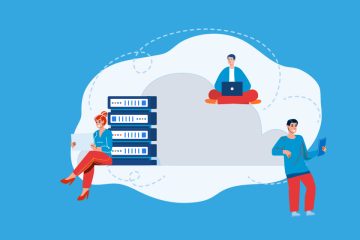In recent years, the healthcare industry has seen a significant shift towards digitization and the adoption of technology to improve patient care and accessibility. One of the most prominent trends in this digital transformation is the rise of medicine delivery apps. These apps are revolutionizing the way people access healthcare services by offering convenient and efficient delivery of medications right to their doorstep. This article will explore the impact of medicine delivery apps on the healthcare industry and discuss the future implications of this growing trend.
The Need for Medicine Delivery Apps
Traditional methods of obtaining medications often involved visiting a physical pharmacy, which can be time-consuming and inconvenient, especially for individuals with mobility issues or chronic conditions. Medicine delivery apps address these challenges by providing a platform for users to order their prescriptions online and have them delivered to their homes or preferred locations.
Convenience and Accessibility
One of the key benefits of online medicine delivery apps is the convenience they offer to patients. With just a few taps on their smartphones, individuals can upload their prescriptions, select the medications they need, and choose a delivery time that fits their schedule. This eliminates the need to wait in long lines at the pharmacy or make multiple trips to refill prescriptions.
Improved Adherence to Medications
Studies have shown that medication adherence is a critical factor in the successful treatment of various health conditions. However, many individuals struggle to adhere to their prescribed medication regimens due to various reasons, including forgetfulness or difficulty accessing pharmacies. Medicine delivery apps help improve adherence by ensuring that patients receive their medications on time and in the correct dosage.
Enhanced Patient Care
By streamlining the medication delivery process, healthcare providers can focus on delivering quality care to their patients. Medicine delivery apps free up valuable time that would have been spent on administrative tasks, allowing healthcare professionals to dedicate more time to patient consultations and monitoring. This leads to improved patient outcomes and higher levels of satisfaction.
Integration of Telemedicine
Many medicine delivery apps are now integrating telemedicine services, allowing patients to consult with healthcare providers virtually and receive prescriptions online. This combination of telemedicine and medication delivery offers a comprehensive healthcare solution that is particularly beneficial for individuals in remote areas or those unable to visit a doctor in person.
Challenges and Considerations
While the rise of medicine delivery apps presents numerous advantages, some challenges need to be addressed. Data security and patient privacy are significant concerns, as the transmission of sensitive medical information through mobile apps can make them vulnerable to cyber threats. Additionally, ensuring the quality and authenticity of medications delivered through these platforms is crucial to safeguarding patient health.
The Future of Healthcare
As technology continues to advance and consumer expectations evolve, the role of medicine delivery apps in the healthcare ecosystem is likely to expand. These apps have the potential to revolutionize the way healthcare services are delivered, making them more accessible, convenient, and personalized. By leveraging data analytics and artificial intelligence, medicine delivery apps can further optimize medication management and enhance patient outcomes.
Conclusion
The rise of medicine delivery apps represents a significant milestone in the digital transformation of the healthcare industry. By offering convenience, improving medication adherence, and enhancing patient care, these apps are reshaping the way people access essential healthcare services. As the adoption of medicine delivery apps continues to grow, it is essential for healthcare providers, policymakers, and technology developers to collaborate in addressing challenges and ensuring the safe and effective delivery of medications to patients.
The Need for Medicine Delivery Apps
Traditional methods of obtaining medications often involved visiting a physical pharmacy, which can be time-consuming and inconvenient, especially for individuals with mobility issues or chronic conditions. Medicine delivery apps address these challenges by providing a platform for users to order their prescriptions online and have them delivered to their homes or preferred locations.
Convenience and Accessibility
One of the key benefits of online medicine delivery apps is the convenience they offer to patients. With just a few taps on their smartphones, individuals can upload their prescriptions, select the medications they need, and choose a delivery time that fits their schedule. This eliminates the need to wait in long lines at the pharmacy or make multiple trips to refill prescriptions.
Improved Adherence to Medications
Studies have shown that medication adherence is a critical factor in the successful treatment of various health conditions. However, many individuals struggle to adhere to their prescribed medication regimens due to various reasons, including forgetfulness or difficulty accessing pharmacies. Medicine delivery apps help improve adherence by ensuring that patients receive their medications on time and in the correct dosage.
Enhanced Patient Care
By streamlining the medication delivery process, healthcare providers can focus on delivering quality care to their patients. Medicine delivery apps free up valuable time that would have been spent on administrative tasks, allowing healthcare professionals to dedicate more time to patient consultations and monitoring. This leads to improved patient outcomes and higher levels of satisfaction.
Integration of Telemedicine
Many medicine delivery apps are now integrating telemedicine services, allowing patients to consult with healthcare providers virtually and receive prescriptions online. This combination of telemedicine and medication delivery offers a comprehensive healthcare solution that is particularly beneficial for individuals in remote areas or those unable to visit a doctor in person.
Challenges and Considerations
While the rise of medicine delivery apps presents numerous advantages, some challenges need to be addressed. Data security and patient privacy are significant concerns, as the transmission of sensitive medical information through mobile apps can make them vulnerable to cyber threats. Additionally, ensuring the quality and authenticity of medications delivered through these platforms is crucial to safeguarding patient health.
The Future of Healthcare
As technology continues to advance and consumer expectations evolve, the role of medicine delivery apps in the healthcare ecosystem is likely to expand. These apps have the potential to revolutionize the way healthcare services are delivered, making them more accessible, convenient, and personalized. By leveraging data analytics and artificial intelligence, medicine delivery apps can further optimize medication management and enhance patient outcomes.
Conclusion
The rise of medicine delivery apps represents a significant milestone in the digital transformation of the healthcare industry. By offering convenience, improving medication adherence, and enhancing patient care, these apps are reshaping the way people access essential healthcare services. As the adoption of medicine delivery apps continues to grow, it is essential for healthcare providers, policymakers, and technology developers to collaborate in addressing challenges and ensuring the safe and effective delivery of medications to patients.




